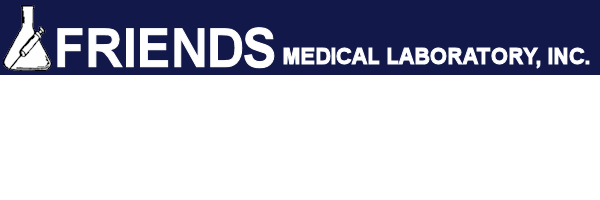A growing number of teens are misusing the prescription muscle relaxant Soma to get high, CBS News reported June 2, 2007.
“Some students are crushing it up and snorting it, ” said Mesa Police Sgt. Sean Kelly in Arizona. “They’re also mixing it with alcohol.”
In Mesa, 29 students were suspended for possessing the drug. A 16-year-old girl was arrested for smuggling 3,000 Soma pills across the border from Mexico and distributing them at five schools.
“They’re really cheap, especially down in Mexico, and everybody’s got them,” said one student.
Mike Salazar, a drug counselor in Arizona, said Soma is part of a national trend toward mixing prescription and over-the-counter drugs to get high. “If [youths] have access to the medicine cabinet, that’s what they’re going to mix together,” Salazar said.
What is Soma?
Soma, a trade name for the prescription drug Carisoprodol, is a muscle relaxant legitimately prescribed to relieve pain from muscle injuries and spasms. When taken in dosages exceeding those recommended by physicians, Soma causes drowsiness, giddiness, and relaxation. Soma is metabolized into Meprobamate, a Schedule 4 drug with a potential for abuse. A significant number of physicians are unaware of the potential for abuse and the metabolism to Meprobamate.
What does Soma look like?
Soma is available as a 250 or 350 milligram tablet. The round white tablets are inscribed with SOMA on one side and 37 WALLACE 2001 on the other. Soma is also available in tablet form combined with Codeine or Aspirin.
How is it abused?
Abusers typically ingest Soma orally. There are reported instances of the drug being smoked or snorted. Many abusers take it in combination with other drugs to enhance the effects of those drugs. Alcohol, Codeine, Valium, Heroin, Vicodin, Meprobamate and Darvon commonly are abused in combination with Soma.
Who abused Soma?
Individuals of all ages abuse Soma. Data reported in the Naitional Survey on Drug Use and Health indicated that 2, 276,000 residents aged 12 and older used Soma non-medically at least once in their lifetime.
Law enforcement officers indicate that youths living in Arizona and California often obtain Carisoprodol at pharmacies in Mexico. Carisoprodol is sold in Mexico under the brand name Somacid and on the street cost $20 for 100 pills. Online orders go for around a dollay for a 350 mg pill.
Soma used in sexual assaults can bbe found in abundance at dance clubs and bars. Drug pushers go where the buyers are, and clubs are typically full of young people looking to take something for fun or recreation. So-called “club drugs”, like Soma, Ecstasy, Ketamine, Rohypnol and GHB, are used to enhance the atmosphere at parties and to help the user “have a good time”. Sexual predators use these drugs to facilitate assaults because large doses create blurred vision, dizziness, and loss of coordination in a victim.
Many “club drugs” used to facilitate sexual assault are increasingly being sold in schools and on college campuses and some can even be purchased online.
What are the risks?
Soma is generally safe when prescribed. However, individuals who abuse Soma can develop physchological addictions to the drug. Common side effects of Soma abuse include blurred vision, dizziness, drowsiness, and loss of coordination. More serious side effects include chills, depression, racing heartbeat, tightness in the chest, vomiting, and unusual weakness. Withdrawal symptoms associated with Soma dependency include abdominal cramps, headache, insomnia, and nausea. Signs that an overdose has occurred include difficulty in breathing, shock, and coma. A Soma overdose can result in death.
What are some Street Names?
The most common street names for Soma are DANCE, DS, Las Vegas Cocktail, Soma Coma and Wallace 200’s.
Soma is known as “Sitting On my Ass” or better yet “Stoned Off My Ass”.
Soma also refers to the area that is “South of Market Street” (hence “SOMA”) in San Francisco. Once strictly a gritty industrial neighborhood, it still maintains the grit while developing into a thriving nightclub area.
Is it illegal to abuse Soma?
Yes, abusing Soma is illegal. Reports of Soma abuse have resulted in a number of states scheduling Soma as a controlled substance. Some states that have taken this action are Alabama, Arizona, Arkansas, Florida, Georgia, Hawaii, Indiana, Kentucky, Minnesota, New Mexico, Oklahoma, Oregon and West Virginia. As of November 2007, Soma has been taken off the market in Sweden due to problems of abuse.
Some additional facts
Soma is the drug used in Huxley’s futuristic utopian novel “Brave New World”. The drug is described to have the affect of modern drugs, yet with no side-effects. Soma is described as bliss, oblivion, pure love, peace, or pure utopia.
Soma was used in ancient Persian and Hindu cultures to induce a hallucinogenic euphoria. It was used as both recreational substance and in religious rituals. Most historians believe Soma to be an ancient Marijuana or Psychedelic Mushroom.
The brand name Soma is shared with the Soma/Haoma of ancient India, a drug mentioned in ancient Sanskrit writings which various classical and modern researchers have theorized could be anything from ephedra to mushrooms of the genus Amanita with hallucinogenic and psychedelic properties related to the muscarinic drugs contained therein to various anticholinergic plants to opium — or a still unknown hallucinogen, stimulant and/or narcotic of unknown chemical class and origin or even coca or other drugs ported from the Western Hemisphere by an as yet unknown pre-Viking, pre-Columbian contact.
Laboratory Testing
Friends medical Laboratory has a long history of testing for Soma. Soma is metabolized to Meprobamate, a drug that is screened by Thin Layer Chromatography and confirmed by High performance Thin Layer Chromatography. GC/MS is an alternative confirmation method used in or laboratory to detect Meprobamate.



